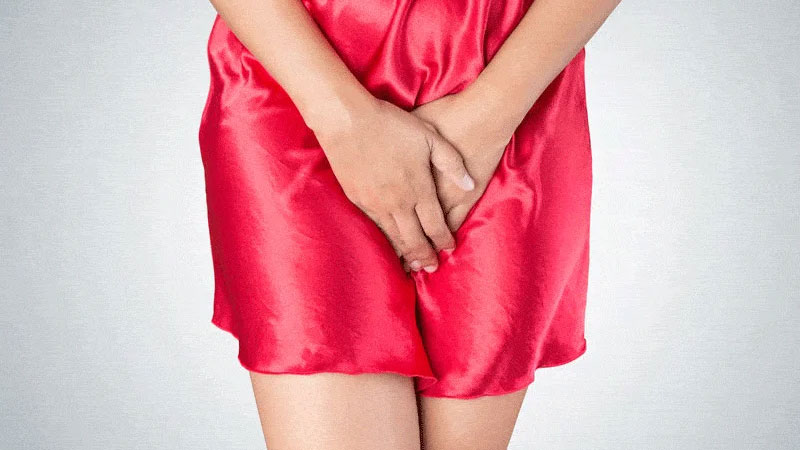Step Up Your Self-Care Game: 5 Ways to Pamper Your Vagina
While it’s true that your vagina is a self-cleaning machine, often, women-identifying folks and other vagina-owners neglect their vaginal health and commit the seven deadly sins of vaginal hygiene. Committing the following hygiene mistakes can result in unpleasant odors or a dreaded UTI infection, sure to doom your sequined thongs to the trash bin.

• Touching your genitals with unclean hands
• Neglecting to pee after sexual intercourse
• Wearing non-cotton panties
• Using scented soaps or cleaners
• Eating over-sugary foods known to trigger yeast infections
• Douching (which alters the PH of your vagina)
• Incorrect cleaning techniques
Even if you manage to steer clear of the above vagina-unfriendly tendencies, you can only achieve optimal vaginal with annual OB/GYN visits. Remember, your vagina is a delicate ecosystem that requires frequent, attentive, and experienced care.
By making your yearly trips to an OB/GYN, you can derive numerous benefits such as access to clinical breast exams, vaccinations, preventive care, birth control, and sexual and reproductive healthcare. For those unable to cover the out-of-pocket costs for routine OB/GYN visits, be sure to review the health insurance options for individuals like you who are currently uninsured.
Vagina care 101
Before you treat your vagina to a much-needed spa day, you’ll need to check-off the vaginal health basics. Whether you slip-up and spend too many days in a row sporting your favorite lacy thongs or shoveling sugary candy (which can boost yeast production) into your system by the handful, it’s time to tweak your vaginal-care routine.
Proper cleaning
Much like the rest of your skin, your mons pubis prefers gentle, fragrance-free products. To avoid disrupting your vulva’s PH balance, avoid cleaning your vagina using scented (perfumed) soaps and sprays. Why? These products disturb the PH balance of your vagina, leading to infections such as yeast infections and urinary tract infections. These soaps could also cause skin irritations, leading to itchiness.
That said, you’ll need to swap your fragrance-heavy body washes out for gentle soaps and clean water. Avoid excessive (more than twice a day) cleaning of your vagina as it could wash away the beneficial bacteria. Lastly, pay attention to the labia as bacteria can gather there. Clean it thoroughly to remove any accumulated vaginal fluid and infection-causing bacteria.
When using the restroom, avoid wiping your vagina from the back to the front. This technique could push anal bacteria towards the vagina, causing infections.
If you use a loofah to get clean, you might need to rethink your decision. The spongy, hand-held scrubber is a perfect natural habitat for bacteria, especially if you don’t routinely sanitize it. Chances are, you leave your loofah unclean until the next use, creating a suitable environment for bacteria to cultivate.
If you must use a loofah, take the following precautions to avoid turning it into a bacteria breeding ground:
• Clean it properly after use
• Let it dry after use
• Replace if color changes or it starts to smell
• Bleach it to kill bacteria
• Microwave it for around 20 seconds to kill bacteria
Cleanliness is your first line of defense in warding off unpleasant odors and infections from your vagina.
Wear comfortable underwear
You might find silk or satin panties to be a sexy addition to your wardrobe, but these cotton alternatives aren’t ideal for your overall vaginal health. Unfortunately, synthetic materials fail to absorb bodily fluids like sweat. These unabsorbed sweat droplets from your weekly spin class can lead to fungal infections and unpleasant odors.
Along with ruling out synthetic materials, you should also avoid tight panties as they aren’t conducive to air drying. You should also avoid wearing damp pants or wet swimsuits for long periods.
During your next Victoria’s Secret run, opt for cotton-made underwear for vagina-changing breathability. The results? A clean, infection-free vagina.
Proper hygiene during menstruation
Changing your tampon every eight hours (at least) is a must for optimal vaginal health. Failure to do so could lead to annoying irritation or infection. If your menses are heavy, it would be best to change your sanitary pads at least every four hours. For light periods, change every six hours. If you are using menstrual cups, ensure you sanitize them before insertion.
Avoid douching
Around 20-40 percent of American women between ages 15 to 44 admit to using vaginal douches. What these women are unaware of is that douches cause more harm than good. Research shows that vaginal douches increase the risk of vaginal infection, irritation, and other health complications, even those douches that claim to be all-natural.
Because douching interferes with the natural acidity of your vagina, you should visit your primary care physician If you notice an odd smell. Remember that douching just masks the smell but fails to treat the root cause.
Pee after sex
Harmful bacteria can enter your vagina during intercourse. Peeing after sex helps in emptying bacteria that could cause infections. You should also avoid having vaginal sex straight from anal sex, as this could transfer harmful bacteria from the anus to the vagina.
Vaginal skincare
Once you’ve revamped your vaginal hygiene, you can splurge on vagina-friendly skincare products. After all, you’ve implemented a 10-step Korean for your face. Why not carry your love of skincare into your vaginal health routine?
Vaginal pre-shave oil
Sick of unsightly razor burn? Opt for a vaginal pre-shave oil. This product can reduce irritation and preps the area for a clean shave by softening your course public hair.
A PH-friendly shaving cream
For the close shave you’ve been dreaming of, invest in sensitive-skin shaving creams. With luxurious shaving creams, you’ll reduce ingrown hairs and redness and achieve a silky-smooth final result.
After-shave balms
To keep the mons pubis smooth and supple, incorporate an after-shave balm. Not only will this skincare addition reduce discomfort post-shave, but it will also boost the user’s confidence tenfold when the area stays razor-bump-free.
To conclude
Practice the above tips to maintain a healthy, odor-free vagina. If you notice any symptoms of infection or suffer from other vaginal discomfort, avoid any form of self-medication. Instead, visit a doctor who can recommend the next steps.



